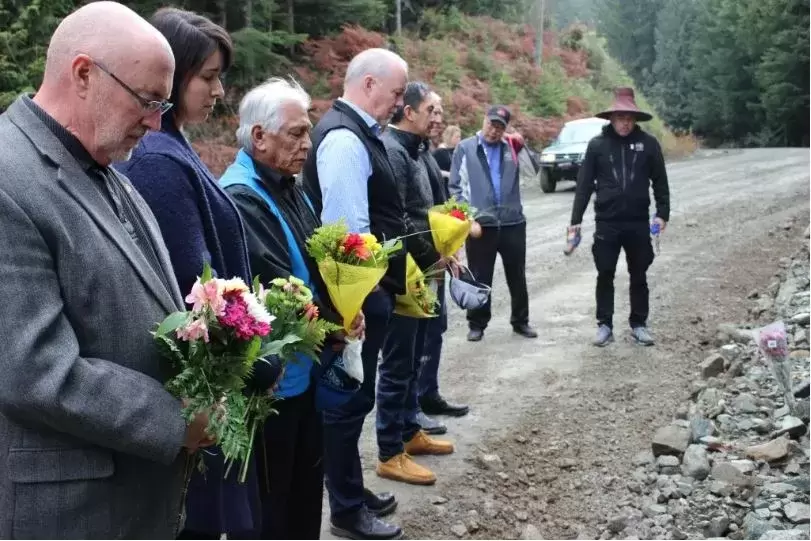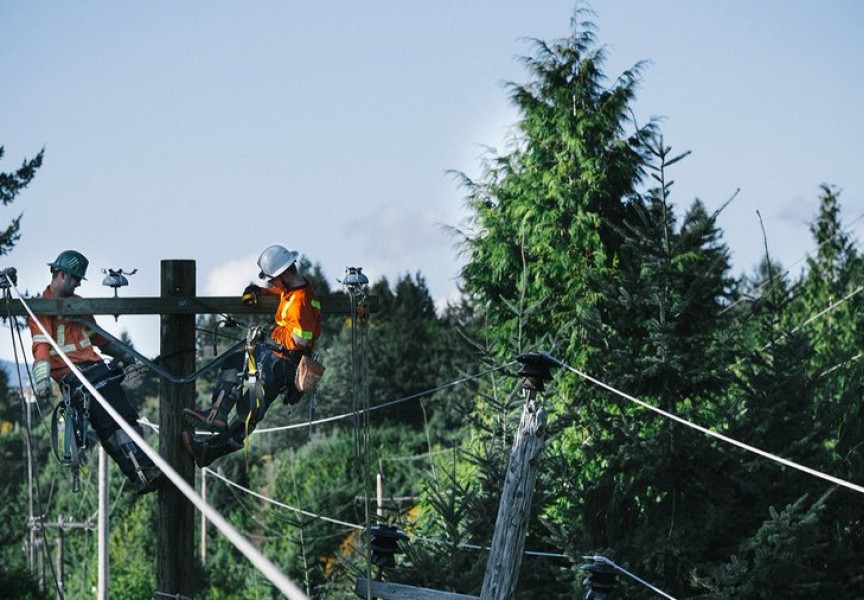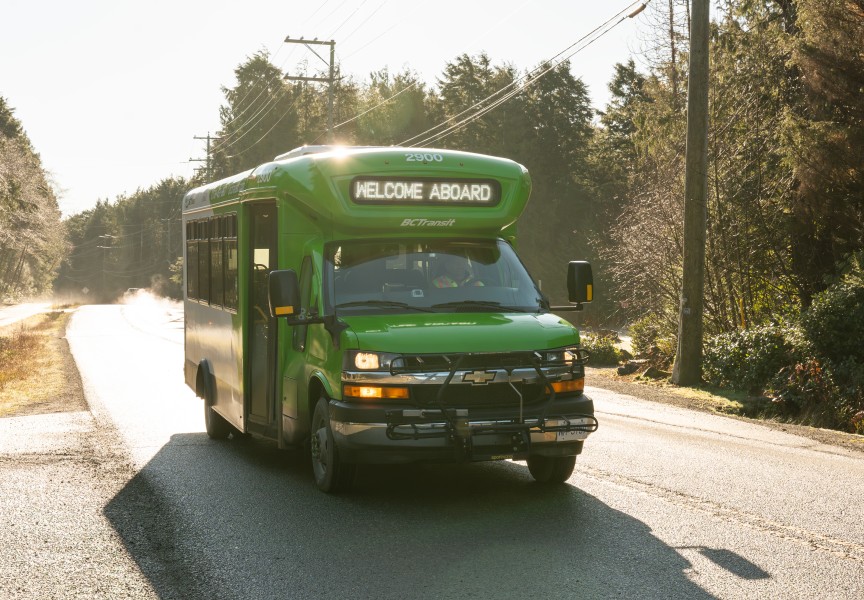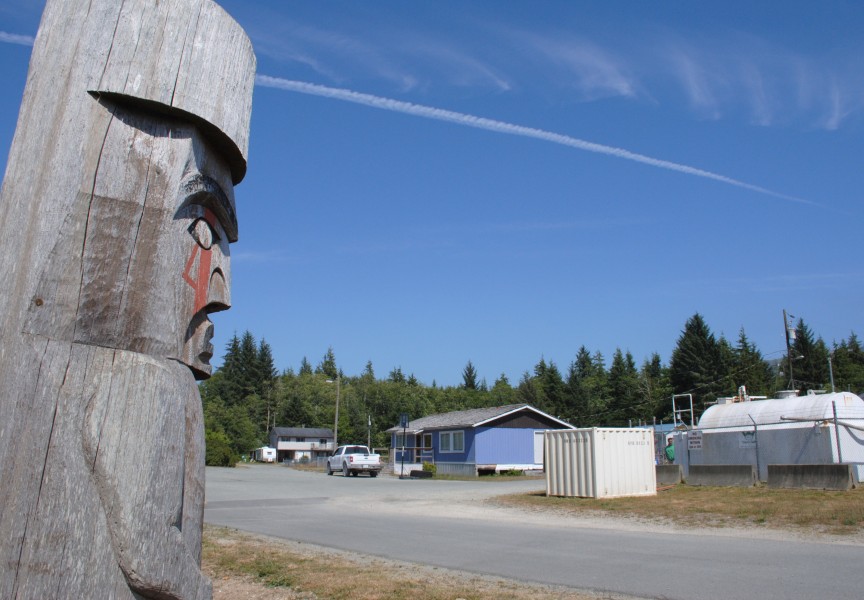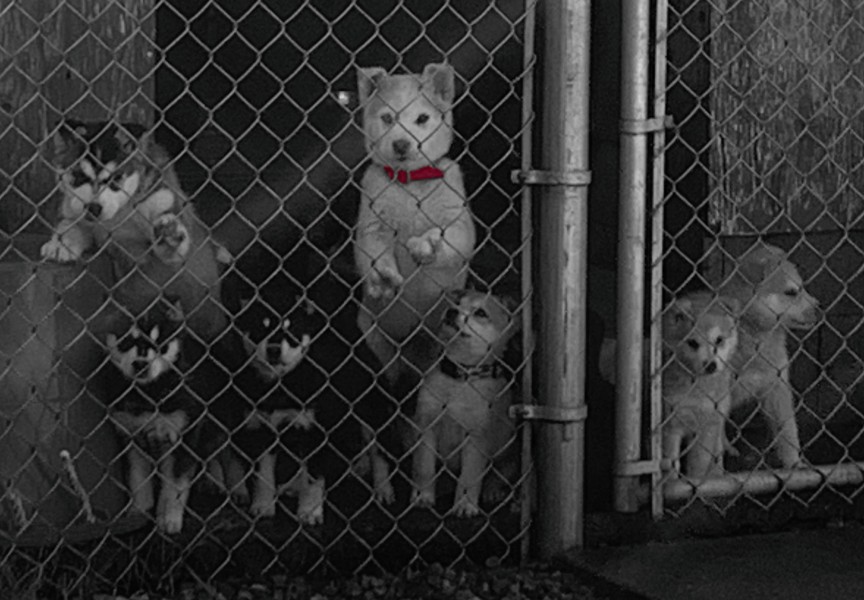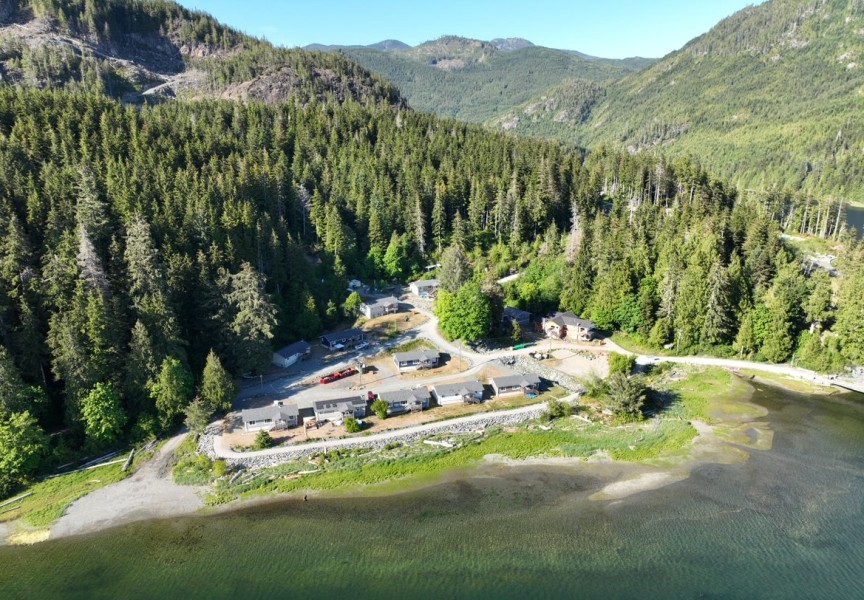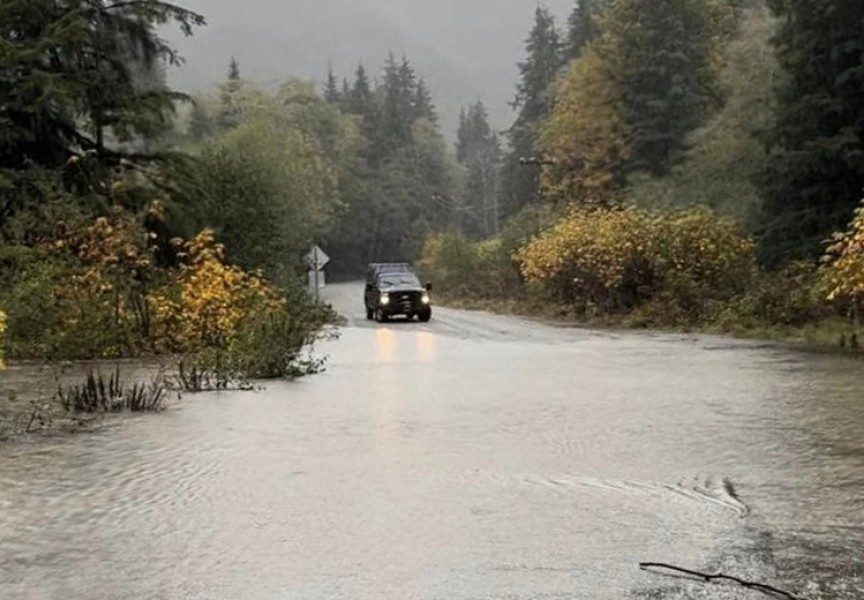This week marked the two-year anniversary of the bus crash that killed two university students who were traveling to the Bamfield Marine Sciences Centre on an annual field trip.
On Sept. 13, 2019, a chartered bus carrying 45 students and two teaching assistants from the University of Victoria slid down an embankment on a logging road between Port Alberni and Bamfield. The accident claimed the lives of 18-year-old John Geerdes and Emma McIntosh Machado, prompting further conversation around improving the safety of the gravel road.
It has long been a concern of the Huu-ay-aht First Nations, who rely on it to access their traditional territory. The nation said it has made the condition of the road known to local and provincial governments since the early 2000s.
Huu-ay-aht First Nations Chief Councillor Robert J. Dennis Sr. said he feels “dread” at the thought of having to travel down the Bamfield Road to attend doctor’s appointments or to re-supply on groceries.
“It’s a very stressful drive,” he said. “You have to brace yourself in case you hit something that might make the car shift.”
Dennis said the tragedy of the accident “opened the eyes of our government representatives” and in September 2020, the province of B.C. partnered with Huu-ay-aht to make “vital safety improvements” to the 76-kilometre stretch of unpaved road.
“The lives lost on this road is just one reason Huu-ay-aht has dedicated countless hours over decades to upgrade the Bamfield road,” Dennis said in a release. “I will never forget the September night when I arrived on the scene of the bus crash. Huu-ay-aht has never wavered from our belief that we need to upgrade the road to keep people safe. I am proud that this project is finally underway, and I hope it will mean no more lives are lost on the Bamfield Road.”
The three-year upgrade project is anticipated to be complete in Fall 2023 and is estimated to cost $30.7 million. The province is contributing $25.7 million and Huu-ay-aht is contributing the additional $5 million.
“Huu-ay-aht First Nations have been advocating for these road improvements for many years,” said Scott Fraser, former minister of Indigenous Relations and Reconciliation, in a release from 2020 when the province announced the road upgrades. “Their partnership is central to this important project, which will support reconciliation goals, our treaty relationship and, most importantly, safer travel for Huu-ay-aht members to and from their community. This project is also key to building the critical infrastructure the communities in this region need to thrive.”
Pre-development work has begun in preparation for hard surfacing the road with a seal coat. Due to its smoother surface, the province said that besides improving the road’s safety, it will cut greenhouse-gas emission by decreasing travel times.
After more than 20 years in his position as chief councillor, Dennis said progress to the road’s condition makes him feel “very relieved.”
“I often think of the families that lost loved ones [on the road],” said Dennis. “This is in their honour … we had to do this. We had to find a way to fix the road.”

